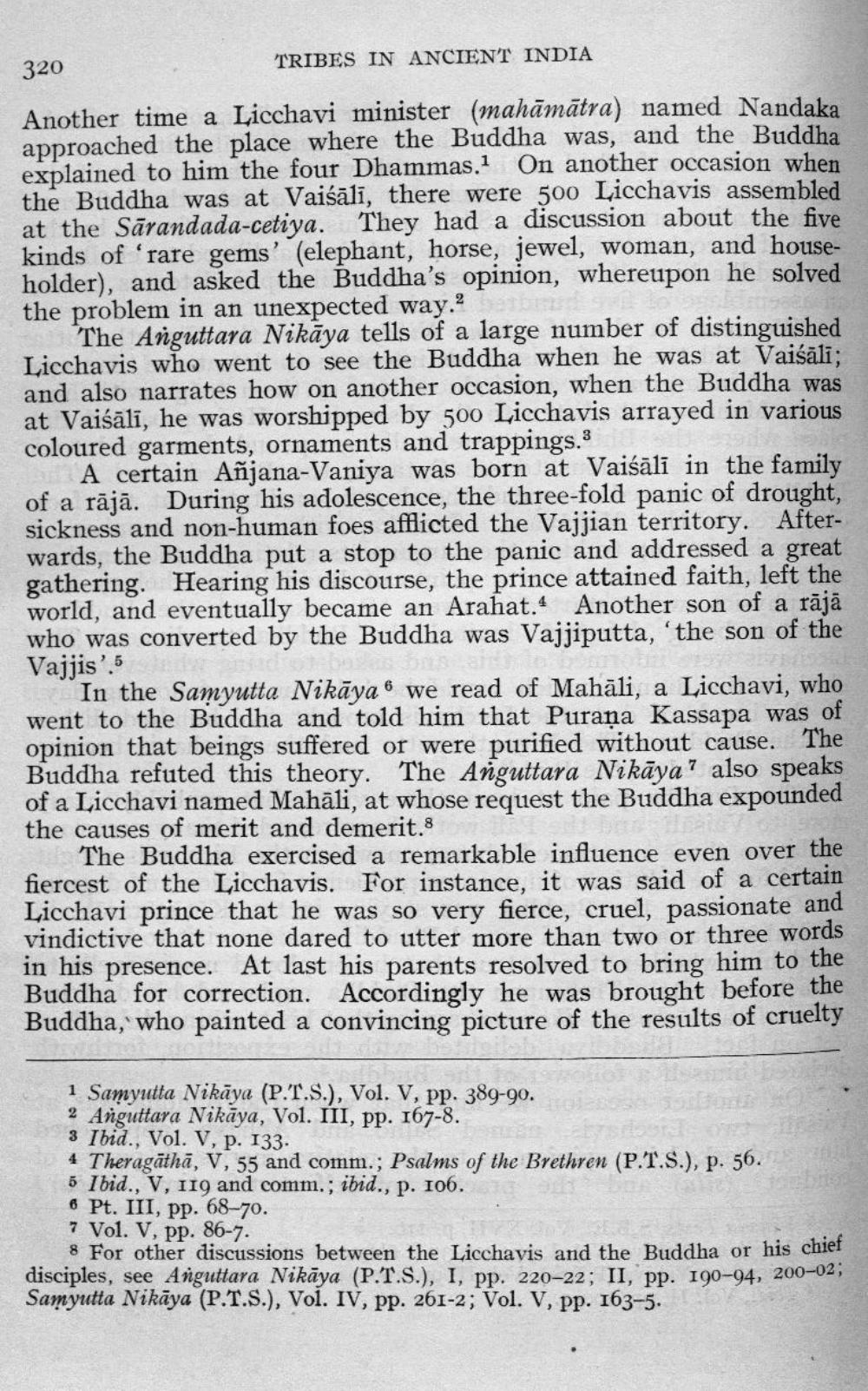________________
320
TRIBES IN ANCIENT INDIA Another time a Licchavi minister (mahāmātra) named Nandaka approached the place where the Buddha was, and the Buddha explained to him the four Dhammas. On another occasion when the Buddha was at Vaiśāli, there were 500 Licchavis assembled at the Sārandada-cetiya. They had a discussion about the five kinds of 'rare gems' (elephant, horse, jewel, woman, and householder), and asked the Buddha's opinion, whereupon he solved the problem in an unexpected way.”
The Anguttara Nikāya tells of a large number of distinguished Licchavis who went to see the Buddha when he was at Vaiśāli; and also narrates how on another occasion, when the Buddha was at Vaiśālī, he was worshipped by 500 Licchavis arrayed in various coloured garments, ornaments and trappings.
A certain Añjana-Vaniya was born at Vaiśāli in the family of a rājā. During his adolescence, the three-fold panic of drought, sickness and non-human foes afflicted the Vajjian territory. Afterwards, the Buddha put a stop to the panic and addressed a great gathering. Hearing his discourse, the prince attained faith, left the world, and eventually became an Arahat. Another son of a rājā who was converted by the Buddha was Vajjiputta, 'the son of the Vajjis '.5
In the Samyutta Nikāya 6 we read of Mahāli, a Licchavi, who went to the Buddha and told him that Purana Kassapa was of opinion that beings suffered or were purified without cause. The Buddha refuted this theory. The Anguttara Nikāya? also speaks of a Licchavi named Mahāli, at whose request the Buddha expounded the causes of merit and demerit.8
The Buddha exercised a remarkable influence even over the fiercest of the Licchavis. For instance, it was said of a certain Licchavi prince that he was so very fierce, cruel, passionate and vindictive that none dared to utter more than two or three words in his presence. At last his parents resolved to bring him to the Buddha for correction. Accordingly he was brought before the Buddha, who painted a convincing picture of the results of cruelty
1 Samyutta Nikāya (P.T.S.), Vol. V, pp. 389-90. 2 Anguttara Nikaya, Vol. II, pp. I67-8. 3 Ibid., Vol. V, p. 133. 4 Theragāthā, V, 55 and comm.; Psalms of the Brethren (P.T.S.), p. 56. 5 Ibid., V, 119 and comm.; ibid., p. 106. 6 Pt. III, pp. 68-70. 7 Vol. V, pp. 86-7.
8 For other discussions between the Licchavis and the Buddha or his chie disciples, see Anguttara Nikāya (P.T.S.), I, pp. 220-22; II, pp. 190-94, 200Samytutta Nikaya (P.T.S.), Vol. IV, pp. 26I-2; Vol. V, pp. I63-5.




